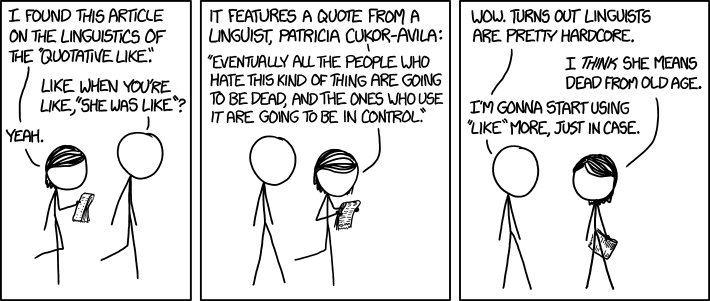Please join us in the Greenberg Room as we hear from John Nerbonne (Groningen), who will give an interdisciplinary talk spanning phonetics, language acquisition and computational modeling! The title and abstract are given below; the talk represents joint work with Martin Wieling (Groningen) and Harald Baayen (Tuebingen/Alberta).
Accents: The big picture
We investigate determinants of the strength of foreign accents in English pronunciation using data from more than 800 speakers and analyzed with an eye to assessing the presence of a critical period in second language learning. Our approach is different as it not only considers a large set of speakers with a variety of language backgrounds, but also uses a validated, computational measure of how native-like the accent of a speaker is. Using piecewise regression, we observe a strong effect of the age of English onset until the age of 6, after which the effect is much smaller (but not absent). However, in a validation step, this effect appeared to be strongly dependent on the language background of the speaker. In our dataset, speakers with a non-Indo-European (non-IE) native language had a clear breakpoint at the age of 6, whereas speakers with an Indo-European (IE) background had only a minor breakpoint around the age of 16. Furthermore, resampling the data in an attempt to verify the results showed that both language groups showed a bimodal pattern, with mirrored locations for the primary modes (IE: majority around 16 and minority around 6; non-IE: majority around 6 and minority around 12). In sum, our study does not support the existence of a stable critical period within which a second language can be learned with a high degree of proficiency. Instead, our results indicate that proficiency is best understood as the outcome of a complex interaction between socio-economic status, educational practice, and the delayed onset and prolonged maturation of the prefrontal cortex.
Join us this afternoon in the Greenberg Room as we hear a colloquium from Jacob Eisenstein (Georgia Tech) today at 3:30pm. A department social will follow.
Variation and Change in Online Writing
Online writing is an increasingly ubiquitous mode for informal, phatic communication, but the implications of this shift for the relationship between writing and speech are still contested. While some point to the rise of a new “netspeak” dialect, quantitative analysis suggests a picture that is more complex: online writing reproduces lexical and phonetic variation from spoken language, while simultaneously hosting an impressive array of apparently novel orthographic variables. I will present computational statistical techniques for identifying variation in online writing, and will discuss the geographical, social, and linguistic properties of several types of variables. Next, I will consider the diachronic perspective, where large-scale longitudinal data enable robust inferences about patterns of linguistic influence across thousands of lexical variables. I conclude with ongoing work on whether and how orthographic variables can maintain their social and geographical distinctiveness in the face of pressure towards leveling in an ever more densely-connected online world.
… featuring a talk by Floris Roelofsen (University of Amsterdam), a CSLI visitor this month, to be given Friday, February 20 at 3:30pm in the Greenberg Room.
Alternatives in Montague grammar
The type theoretic framework for natural language semantics laid out by Montague (1973) forms the cornerstone of formal semantics. Hamblin (1973) proposed an extension of Montague’s basic framework, referred to as alternative semantics. In this framework, the meaning of a sentence is not taken to be a single proposition, but rather a set of propositions—a set of alternatives. While this more fine-grained view on meaning has led to improved analyses of a wide range of linguistic phenomena, it also faces a number of problems. We focus here on two of these, in our view the most fundamental ones.
The first has to do with how meanings are composed, i.e., with the type-theoretic operations of function application and abstraction; the second has to do with how meanings are compared, i.e., the notion of entailment. Our aim is to reconcile what we take to be the essence of Hamblin’s proposal with the solid type-theoretic foundations of Montague grammar, in such a way that the observed problems evaporate. Our proposal partly builds on insights from recent work on inquisitive semantics (Ciardelli et al., 2013), and it also further advances this line of work, specifying how the inquisitive meaning of a sentence, as well as the set of alternatives that it introduces, may be built up compositionally.
Cleo Condoravdi will be giving a talk for the Varieties of Agency workshop, discussing her work on “Preference-Conditioned Necessities: Detachment and Practical Reasoning”. The talk will be in the Board Room of the Humanities Center.
All are welcome!
Cartoon from XKCD; content from the work of our own Janneke van Hofwegen!

